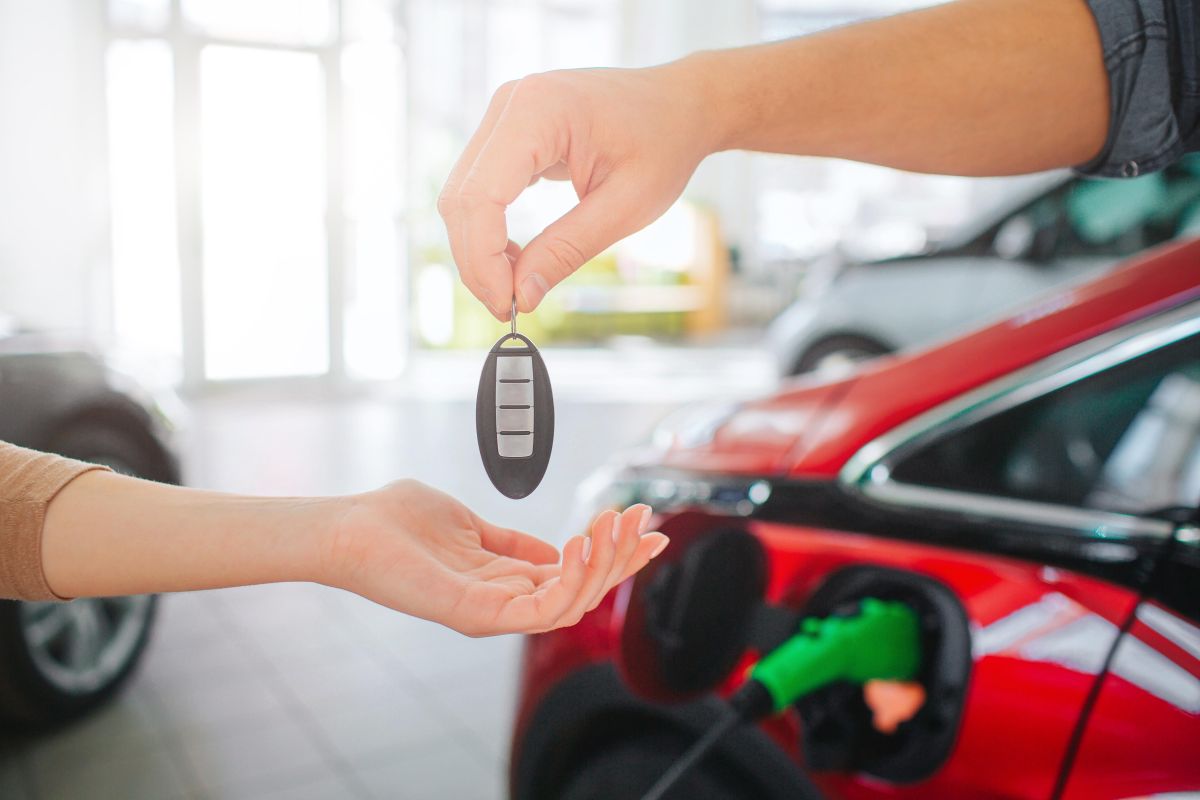For the first time in two decades, New Jersey sales of fully electric vehicles (EVs) will be taxed.
The tax will rise from zero to about 3.3% on Oct. 1, and double to approximately 6.6% on July 1, 2025. New Jersey Gov. Phil Murphy signed the measure into law June 28 as part of New Jersey’s $56.7 billion fiscal year 2025 budget, minutes after the state legislature passed the bill.
Car buyers in New Jersey haven’t paid sales taxes on fully electric vehicles since 2004. The legislation comes in the same year the state government has worked to balance the state budget through collecting more revenue on automotive sales and usage. In March, Murphy signed legislation hiking New Jersey’s gas tax a total 10 cents through 2028, and imposing an annual $250 registration fee on EVs, rising $10 yearly through July 2028. Both the gas tax and registration fee hikes started in July.
 New Jersey Gov. Phil Murphy speaks at a press conference June 28.
New Jersey Gov. Phil Murphy speaks at a press conference June 28.
Bill supporters claimed the new law helps put the sales markets for EVs and non-EVs on equal footing, while bill opponents argued the legislation curbs incentives that were driving New Jersey toward its goal of registering 330,000 EVs by 2025.
“It’s about having a level playing field between regular, internal combustion engine cars and battery-electric vehicles, too, now that they’re more widely available,” Eric Blomgren, director of government affairs for the New Jersey Gasoline, C-Store, and Automotive Association (NJGCA), told Autobody News.
Blomgren added the EV sales tax comes in conjunction with the new EV registration fee, established “to make up for the fact that they use the roads, and they damage the roads, but they [didn’t] pay any gas tax” before July.
New Jersey Electric Vehicle Association Policy Lead Ashley Lynn Qua called the reinstated sales tax “punitive.” She said consumers shouldn’t eat higher upfront costs to drive an EV, until the state hits its goal to register 330,000 EVs, at the very earliest.
“We haven’t even made it there yet,” Qua said. “They’re already starting to roll back some of these incentives and some of these supports that are going to help us get there.”
Combined, the two bills are expected to increase the cost of a new fully electric vehicle by $2,400-$3,000 when the sales tax takes effect this fall, up to a total of $5,000 when that tax doubles in July 2025, Blomgren said.
Auto Repairers Stand to Benefit from EV Sales Tax
The taxes could ultimately benefit repair shops and the aftermarket industry, Blomgren told Autobody News.
“That high price is not a price that consumers can meet anymore,” he said. “As a result, they’re turning more and more to used cars and to keeping the cars they have on the road even longer, setting new records all the time for how long the average car is in usage. And ultimately, that’s beneficial to the aftermarket industry, in general, because they need to get those cars serviced and on the road.”
The approved EV sales tax hike, sponsored by Democrats Sen. Paul Sarlo, Assemblyman Benjie Wimberly and Assemblywoman Eliana Pintor Marin, requires all auto sellers in New Jersey to annually report the number of zero-emission vehicles sold, and the amount of EV taxes collected. New Jersey announced in 2023 that all new car sales must be electric starting in 2035. In 2026, the state intends to start phasing out new gas-powered cars, while continuing to allow the sale of used gas-powered cars.
Also on June 28, the New Jersey legislature passed a bill that would allow lease and purchase contracts for electric school buses to exceed the current term of 10 years provided for fossil fuel school buses procured by state school systems.
Under the bill, the authorized term of a lease purchase agreement would be authorized to cover the service life of any electric school bus. The bill awaits Murphy’s signature.












